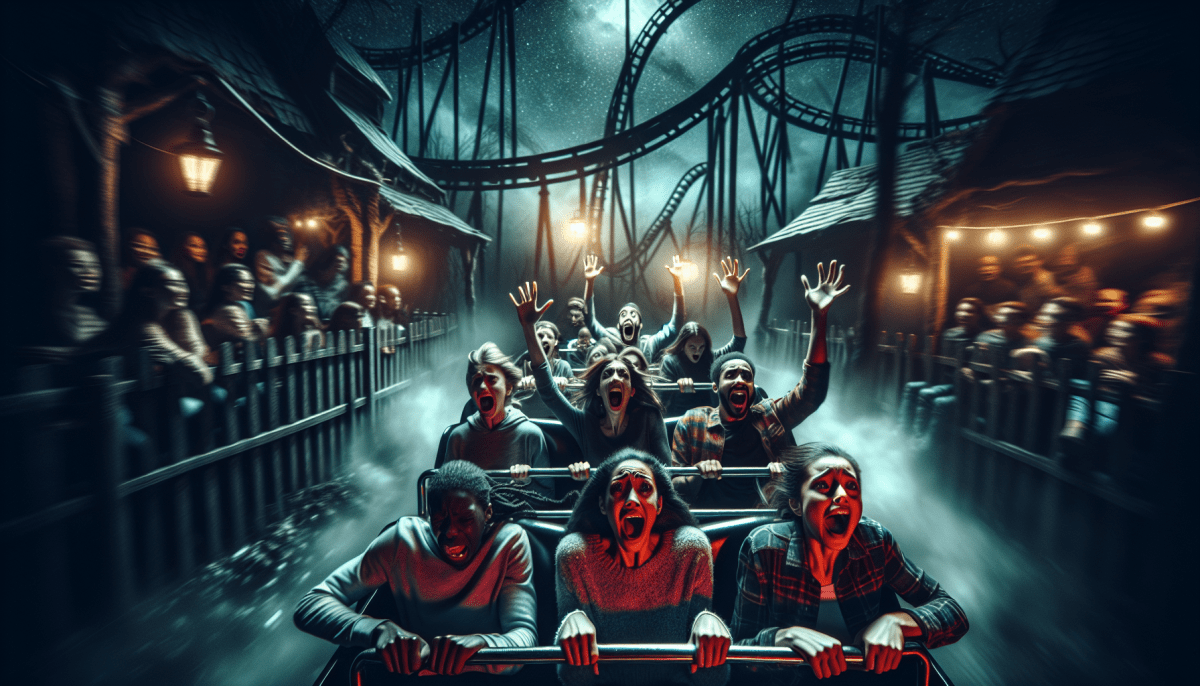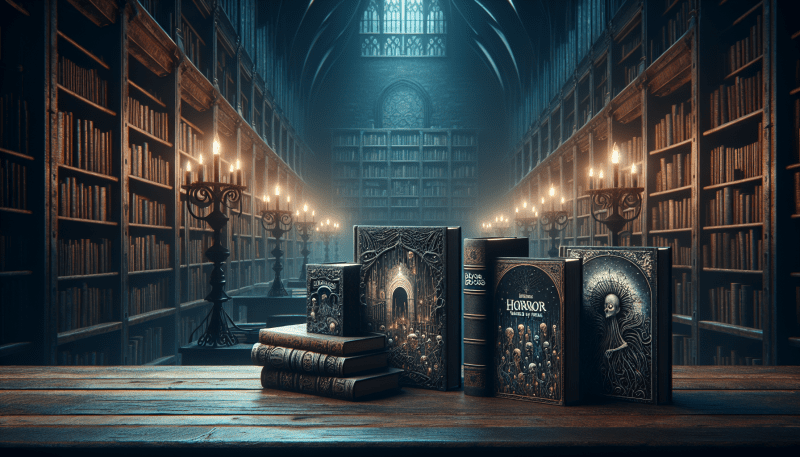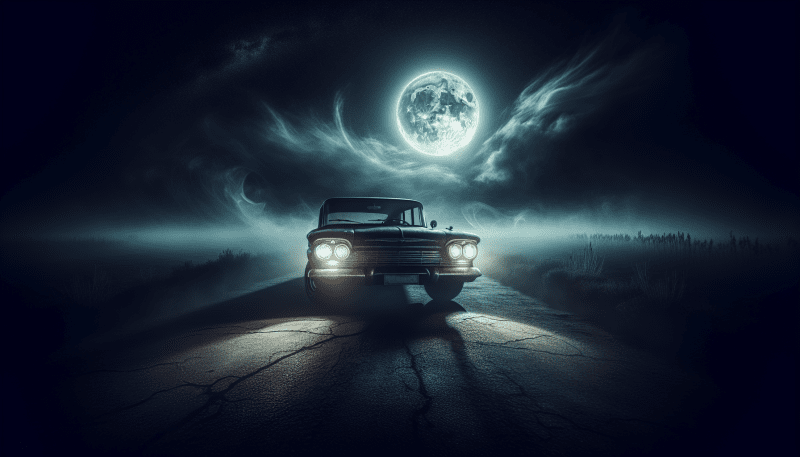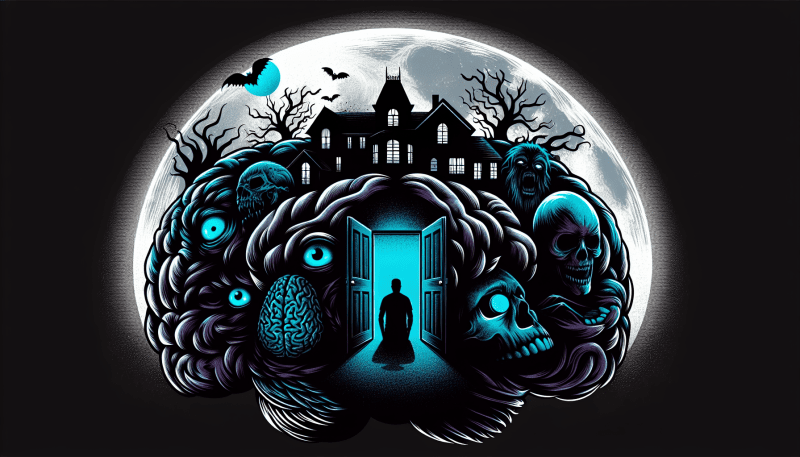The Psychology of Fear: Why We Love to Be Scared
Meta Title: The Psychology of Fear: Why We Love to Be Scared
Meta Description: Discover the psychology of fear and why being scared is strangely fun. Explore the science behind your love for horror and thrills.
Table of Contents
Introduction: Why Fear Feels So Good
Why do so many of us love horror movies, haunted houses, and spine-chilling tales?
It might seem strange, but being scared—on purpose—can be fun. That’s because the psychology of fear reveals something fascinating: fear isn’t just about danger. It's also about thrill, curiosity, and even pleasure.
In this article, we’ll explore the psychology of fear, uncover why we crave scary experiences, and explain how fear can be both terrifying and enjoyable.
The Psychology of Fear: What Is Fear, Really?
Fear is one of our oldest and most primal emotions.
At its core, fear is a survival mechanism. It tells us when to run, when to freeze, and when to fight. This emotional response helped our ancestors avoid danger—and still kicks in when we’re startled today.
Types of Fear
-
Real fear: Caused by genuine threats (like a car speeding toward you).
-
Perceived fear: Triggered by imagined scenarios (like a ghost in the attic).
-
Recreational fear: The kind we seek out—haunted houses, horror movies, thrill rides.
It’s this last type that fascinates psychologists—and horror fans.
The Brain on Fear: How We React
When you're scared, your brain shifts into high gear.
How Fear Travels in the Brain
-
The amygdala lights up first. It's the brain’s fear center.
-
Signals are sent to the hypothalamus, triggering a fight-or-flight response.
-
Your body floods with adrenaline—your heart races, pupils dilate, and your senses sharpen.
This reaction happens fast—often before you're even aware of what scared you.
Fear Can Be Addictive
This rush of chemicals—especially dopamine—can actually feel good, especially if you know you're safe. It's like a mini rollercoaster in your nervous system.
The Thrill Factor: Why We Love to Be Scared
So why do we seek out fear if it evolved to protect us?
Because in the right setting, fear becomes entertainment.
Controlled Danger = Excitement
When we engage with scary content in a safe place, like watching a horror film on the couch, our brain gets the thrill of danger without the risk.
This controlled fear:
-
Releases adrenaline and endorphins
-
Heightens awareness
-
Creates a feeling of euphoria once the threat is gone
That’s the psychology of fear in action.
Fear and the Horror Genre: A Perfect Match
Horror stories are carefully crafted to manipulate fear. And we love it.
Whether it's a slow-burning dread or a jump scare that sends popcorn flying, horror uses psychology to:
-
Trigger suspense
-
Build tension
-
Create release
Common Fear Triggers in Horror
-
Darkness
-
Isolation
-
The unknown
-
Loss of control
-
Supernatural elements
Each of these taps into our deep, instinctive fears.
Social and Cultural Roots of Fear
Not all fear is universal. Some fears are shaped by culture, tradition, and even time period.
Folklore and Collective Fear
From vampires in Eastern Europe to shadow people in modern internet culture, our stories reflect what we fear as a society.
What scared us in the 1800s might seem quaint now—but every era finds new ways to channel its collective anxieties into monsters.
The Safe Space of Scary Stories
One reason we love horror is that it offers a sandbox for fear.
Watching, reading, or listening to scary stories lets us explore the darker sides of life—without the real-life consequences.
Fear as a Simulator
Some psychologists argue that scary media acts like a flight simulator for your emotions:
-
You get to "practice" reacting to danger
-
You gain insight into your own boundaries
-
You explore mortality in a safe space
It’s like emotional training with ghosts and gore.
Are You Wired to Enjoy Fear?
Not everyone loves being scared—and that’s okay.
Some people are more sensation-seeking, which means they crave intense experiences. For them, fear feels like a rush.
Others are more sensitive to threat, and may find horror genuinely unpleasant or overwhelming.
Your Fear Personality
-
Adrenaline Junkie: You live for haunted houses and creature features.
-
Curious Creep: You like spooky stories but prefer to read them in daylight.
-
Avoider: Nope. Not today. Not ever.
Wherever you fall, understanding the psychology of fear can help you appreciate your own reactions—and others’.
Fear and Connection: Why We Scream Together
One of the most fascinating things about the psychology of fear is how it actually brings people closer together.
Think about it—how many horror movies have you watched huddled under a blanket with friends, or how often have you laughed right after a scare?
Scared Together = Bonded Together
Psychologists call it "social buffering"—when we experience fear alongside others, our emotional response is less intense, but the thrill remains. Shared scares help:
-
Build trust
-
Increase oxytocin (the bonding hormone)
That’s why haunted houses and horror marathons are popular group activities—they turn fear into fun, together.
Virtual Fear in the Digital Age
In today’s world, fear is no longer limited to books or films.
Social media platforms and games have created interactive fear experiences. From creepypastas like Slender Man to viral horror challenges on TikTok, being scared is now more immersive—and sometimes more unpredictable.
Digital Scares, Real Reactions
Our brains still react the same way to digital fear. The jump scare from a YouTube video? It activates your amygdala just like a growl in the dark would have thousands of years ago.
The psychology of fear hasn’t changed—but the mediums of fear certainly have.
Conclusion: Embracing the Dark
Fear is part of what makes us human.
And when we embrace fear—especially through horror—we gain more than just a cheap thrill. We connect to primal emotions, bond with others, and even learn more about ourselves.
So the next time you're watching something that makes your heart race and your palms sweat, remember: your brain is doing exactly what it was built to do. And weirdly enough, you’re probably enjoying it.
That’s the strange, fascinating beauty of the psychology of fear.
FAQs About the Psychology of Fear
Q: Why do we enjoy being scared?
A: Because it gives us a thrill in a safe setting—releasing chemicals like dopamine that feel good once the "danger" is over.
Q: Is fear healthy?
A: In moderation, yes! Experiencing controlled fear can help us process stress, build resilience, and even bond socially.
Q: Do all people like horror?
A: Not at all. Some people are more biologically or psychologically sensitive to fear, and that’s perfectly normal.
Q: Is fear the same as anxiety?
A: No—fear is a reaction to a specific threat. Anxiety is more vague and persistent, often with no direct trigger.



